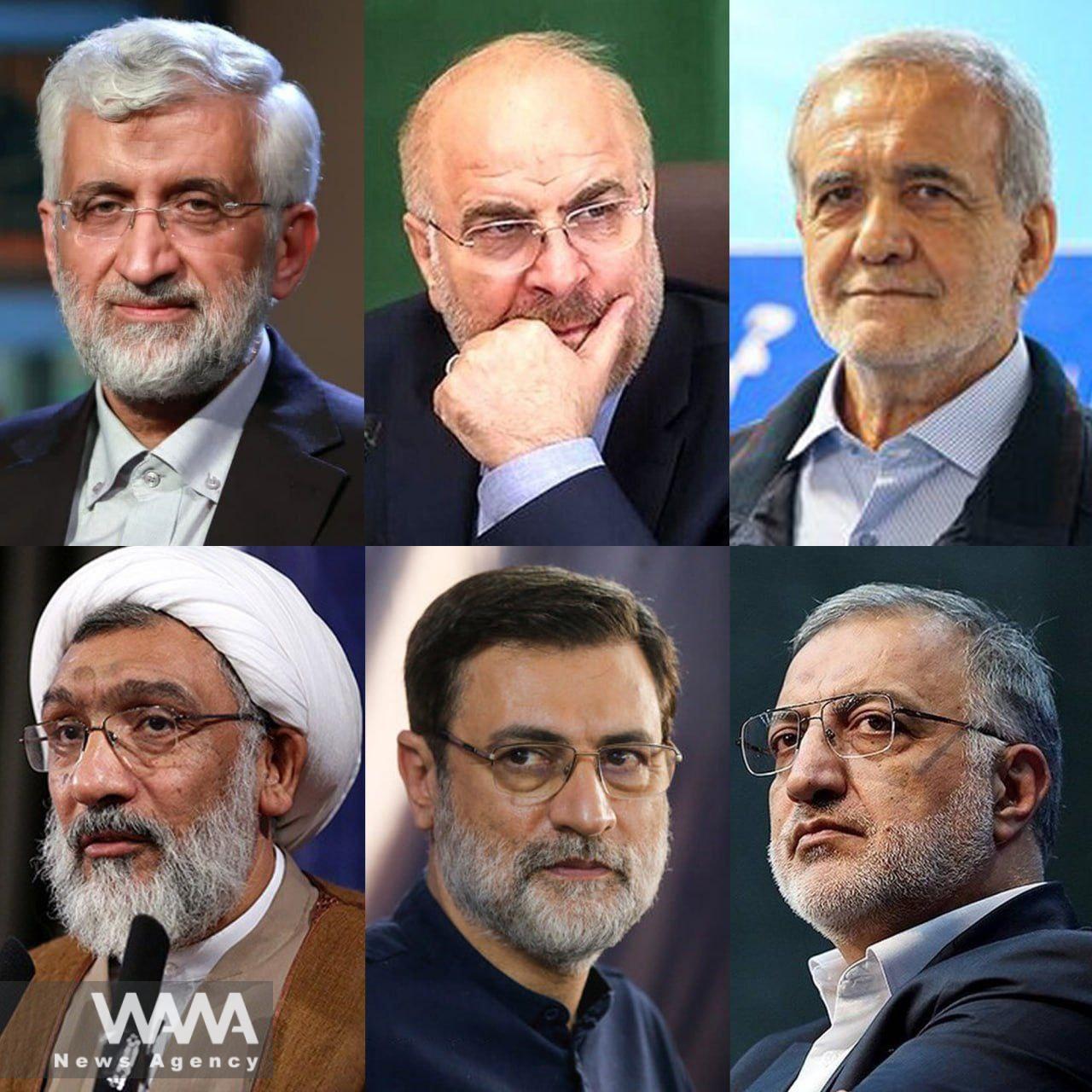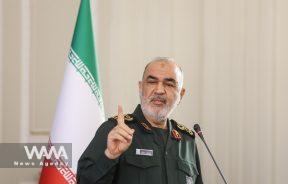1st Presidential debate in Iran; Fierce attacks, mellow responses
WANA (June 18) No Winner Yet… Presidential candidates for the upcoming snap elections traded a few punches as they expressed their economic views and plans. The hopefuls continue trying to position themselves as the best candidate to tackle Iran’s economic woes.
The fiercest attacks came from conservative Alireza Zakani, targeting reformist candidate Masoud Pezeshkian, who evaded direct responses. Zakani says, “The country needs a manager who is both honest and capable of fighting corruption, as well as being effective.” Zakani went on to say, “It’s a wonder how he became a presidential candidate”. Zakani also targeted Mustafa Pour Mohammadi in his attacks, but the cleric did not respond as sharply as the Mayor of Tehran.
Conservative Pour Mohammadi, considered by some moderates, tries to showcase himself as an alternative for the “revolution front”; however, the first debate did not go his way. Pour Mohammadi attempted to be the star of the night by rhetoric and general responses.
Saeed Jalili stayed in the shadows and only presented his plans and strategies for the future government. He says people in Iran are faced with a choice between two perspectives: one is an everyday option that doesn’t have long-term effects, and the other is an opportunity to “leap forward”. Jalili believes that U.S. “maximum pressure” policy has failed due to Iran’s good planning and understanding of the country’s available resources.
He says sanctions against Tehran play a minor role in the country’s economic situation, and with better management of available resources, Iran can reach 8% growth yearly.
Conservative Mohammad Bagher Ghalibaf, at times, found common ground with the reformist candidate during the debate, particularly on the issue of sanctions. This divergence of views within the conservative camp on such a crucial issue hints at a lack of consensus on how to handle the country’s economic challenges, adding an element of intrigue to the political landscape.

WANA – Presidential Candidates
Zakani and Amir Hossein Ghazizadeh are shielding Jalili rather than Ghalibaf against attacks from other candidates. Zakani and Ghazizadeh are largely believed to quit the presidential race in favor of Jalili or Ghalibaf. However, Zakani have rejected these claims and said he will be in the race till the end.
Meanwhile, Ghalibaf has urged the “revolution front” repeatedly to make consensus on one candidate. It is a clear signal to Jalili who has strong base among Iranian conservatives. Jalili quit in favor of Ebrahim Raisi in 2021 presidential election but now due to the formation of candidates the possibility is low.
On the other side of the arena, Reformist Pezeshkian spoke about “coordination and unity” among Iranians. He was currently referencing a claim by reformists in which they accuse the establishment in Iran of “purification” and social divide. However, since the start of campaigning, Pezeshkian has tried his best to depict himself as a follower of Iran’s leader’s general policies rather than a secular Reformist.
The issue has drawn a range of reactions from his fellow reformists, who say he is not representing them properly and cannot excite the masses in favor of the reformists. In contrast, some experts suggest the strategy aims to attract moderates and conservatives and is a signal to the governing system that he will not challenge the establishment as other reformists. Pezeshkian has neither excited reformists nor conservatives who are at odds with current candidates.
By WANA writer












